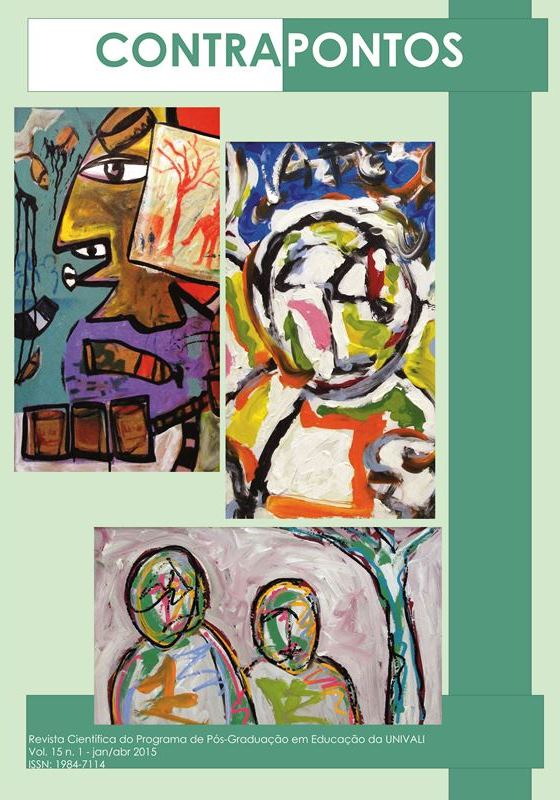TEACHER’S WORK IN LIQUID MODERNITY: PREZI APPLIED IN TEACHINGLEARNING PROCESS OF “SURFER STUDENTS”
DOI:
https://doi.org/10.14210/contrapontos.v1n1.p111-121Keywords:
Education, Liquid Modernity, Prezi.Abstract
The social, economic and cultural conditions of today’s world reverberate through the formal education and also, in the way in which teachers plan their studies and interventions. Students tend to “surf” social knowledge, i.e. they see knowledge as temporary and superficial, with a preestablished shelf life. In this context, teachers make many attempts to use computers as a teaching resource. Our aim is to investigate discuss whether the expository classes elaborated using the Prezi software can be attractive to these surfer students. To this end, throughout this research, we used the bibliographic method, and as theoretical background we used Bauman (2005; 2007; 2008; 2010; 2013); Gatti (2005), and Hernández (2000; 2007). In view of the results, we consider Prezi to be an attractive resource for elementary, high school and undergraduate students, bearing in mind the dynamic characteristics offered by its tools.Downloads
Published
2015-04-22
Issue
Section
Articles
License
Upon acceptance of an article, the author gives full rights of the work to Contrapontos., but retains the authorship. The published work is considered collaboration. Thus, its author will not get paid nor will s/he be charged by Contrapontos. The responsibility of the article solely goes to the authors. Citations and transcriptions are allowed by mentioning the sources.
Â

This work is licensed under a Creative Commons Attribution 4.0 International License.

